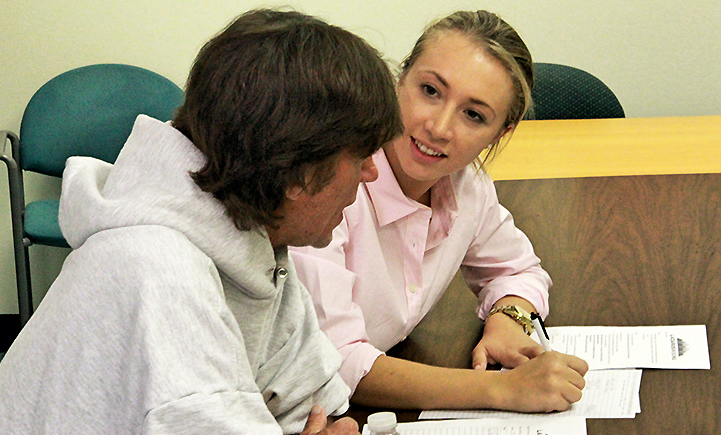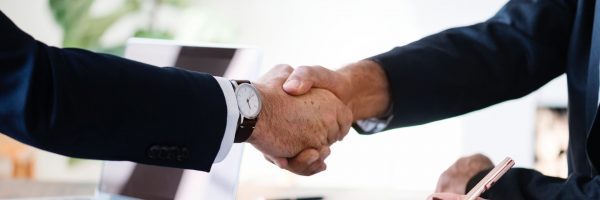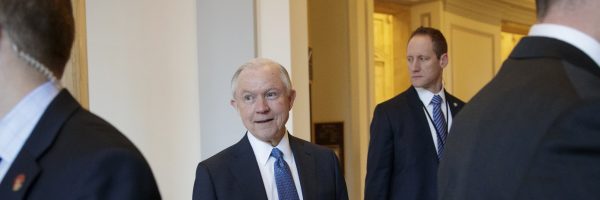The Tech Giant Investment in Renewable Energy – Chicago News

Let’s explore some of the most interesting stories that have emerged from Chicago business schools this week.
The New Boom – Mendoza Business Magazine
The Notre Dame University Mendoza College of Business recently discussed why tech behemoths like Google and Amazon have begun to invest heavily in renewable energy technologies—and why this largely U.S. phenomenon is about to go global.
The Mendoza Business Magazine article notes that the reason underlying this new trend is due to the fact that clean energy became cheap energy.
“Once the favorable trajectory of renewable energy economics became apparent, it didn’t take long for some of the world’s largest companies to act. Google and Apple signed trailblazing renewable energy deals in 2012.”
It’s likely that these deals helped generate a domino effect where American and Mexican companies “signed deals for just over 10 gigawatts of renewable energy capacity between 2012 and 2017.”
According to the International Energy Agency, “renewables accounted for nearly two-thirds of new power capacity installed globally in 2016.”
The International Renewable Energy Agency reports that the cost of “generating power from onshore wind turbines and solar photovoltaic panels fell by 25 percent and 73 percent, respectively, since 2010, and predicted that all renewable energy technologies would be economically competitive by 2020.”
According to the school, “The market is ready to ramp up outside the United States, too, in part because U.S.-based multinationals are now looking to buy clean energy overseas.”
You can read the full piece here.
Sarah Siderius Gets the Job Done at Google – UIC Business
The Liautaud Graduate School of Business recently profiled current MBA student Sarah Siderius (’19) whose educational experience at UIC laid the groundwork for her stint as a contractor with Google.org, the philanthropic arm of the tech powerhouse.
Siderius explains how her LinkedIn profile helped her land the position. “As a part of my previous role, I helped my employer establish their philanthropic program. Having this experience on my resume caught this recruiter’s eye, which ultimately led to this amazing opportunity.”
Siderius most recently played an integral role in the Google.org Impact Challenge, Illinois, which awards “$1 million in grants to Illinois nonprofits who are creating economic opportunity in the state.”
She explained that she “enjoyed the fact that she was not only able to work for such an amazing company, but that she was able to give back through her work.”
Find out more about Siderius and her new role here.
How the Coffee Industry Is Building a Sustainable Supply Chain in an Unstable Region – Kellogg Insights
The Northwestern University Kellogg School of Business recently profiled the political and ethical hurdles associated with the newfound excitement surrounding the “quality of Robusta and Arabica” grown in the Democratic Republic of Congo right now. According to the article, “Harvesting, washing, and transporting Congolese coffee beans from the area is fraught with peril, from the dozens of militia groups operating in the east of the country to decades of political instability.”
Assistant Professor of Managerial Sciences and Decisions Sciences Ameet Morjaria, whose research focuses on the East African coffee supply chain, explains, “Development dollars have arrived at the shores of the eastern Congo. For those top dollars to have a lasting impact is not straightforward: farmers are poor, lack support, and struggle to get access to finance.”
“Their trees are old, badly maintained, and low-yielding. On top of that, investors worry about the expense and logistics of getting produce out of the country at volume. And lastly there are issues of insecurity and poor governance.”
Morjaria spoke to two experts on the Congolese coffee industry: SHIFT Social Impact Solutions founder Sara Mason and DRC Producer Group Development Platform Head Angel Mario Martinez Garcia.
Mason explains why it’s essential for companies to continue working in DRC.
“We really hope that in a few years, with positive support from the government, there might be a chance to transform the sector into an agricultural growth opportunity that will fully realize its potential.”
She adds that the actual growers are often vulnerable to exploitation due to extreme poverty, lack of education, and limited ability to communicate with the outside world. “Helping to support strong, transparent producer organizations was one of the drivers for creating the SHIFT DRC Producer Group Development Platform.”
Martinez Garcia says, “A quick fix is never going to work in the Congo. And sometimes it’s a challenge to find someone who’s able to provide resources and time and energy for people to work there in the long run.”
“It is really important to continue supporting producers, to continue increasing skills and knowledge. Because they are the ones, even after we end any activity or any project we have there—in a year or 10 years or 20 years—who will still be there working and living and discussing any future of the coffee sector in the Congo.”
You can read more from Northwestern Kellogg here.
Helping the Homeless Find Work, New Awards, and More – New York City News

Let’s explore some of the most interesting stories that have emerged from New York business schools this week.
Binghamton University Alumni Combat Homelessness By Building Résumés, Confidence – Binghamton SOM
Binghamton SOM’s blog recently profiled Lazarus Rising, an emerging nonprofit led by alumnus CEO Danny Graziosi (’17, MBA ’18). Graziosi’s mission is to empower homeless individuals to “navigate the twists and turns of the modern-day job hunt.”
He writes, “There are so many misconceptions about homeless people. A lot of them are people who have fallen on hard times. Maybe they went through a divorce or they lost everything during the recession or they were sick.”
When he first got involved with the organization, Graziosi realized that the participants had a lot more work experience than people may assume.
“An important part of what we do is show our participants that they have value and that they can contribute that to society, giving them confidence in their abilities.”
According to the article, college-age and young professional volunteers work with individuals at homeless shelters to help “build résumés, holding mock interviews and walking them through the job-application process.”

Lazarus Rising, founded by Binghamton MBA alum Danny Graziosi, helps the homeless navigate the difficult task of getting back into the labor force / Photo via binghamton.edu
Visit Lazarus Rising’s website for more information and read the full article here.
Patients, Doctors Dissatisfied by Electronic Health Records – Lehigh College of Business & Economics Blog
In contrast to a recent Mendoza College of Business study, new Lehigh University College of Business and Economics research uncovered very different conclusions after surveying how the “integration of outpatient and hospital Electronic Health Record (EHR) systems affected provider and patient satisfaction” at ob-gyn practices as part of the Lehigh Valley Health Network.
Published in the Journal of the American Medical Informatics Association, researchers discovered that the implementation of EHRs were seen as disruptive and frustrating across the board to physicians, staff, and patients.
Coauthor and Lehigh Professor of Economics Chad Meyerhoefer writes, “It was more of an adjustment for physicians, as it required them to do additional documentation they didn’t have to do before, and it had a bigger impact on their workflow.”
“Our thought was after the system was implemented and some time had passed and all these new capabilities are added to the system, the patients would see the benefits of that and feel better about their visits. But that didn’t happen.”
Meyerhoefer explains the major takeaway:
“During these implementations or after you have the system in place, you have to really think about how this is going to affect patients and maybe do training on patient interactions with electronic medical records to head off some of these negative effects.”
You can read the full article here.
Director of the Business Leadership Center Receives the Leo Zatta Award from Team Walker – Stillman School of Business
The Seton Hall University Stillman School of Business announced that Buccino Center for Leadership Development Director Michael Reuter will receive Team Walker’s Leo Zatta Award this October.
According to the school, the mission of Team Walker is to “improve the quality of life for the children of Jersey City [via] after-school and summer programs that teach sports, academics and life skills.”
Team Walker President and CEO and former Seton Hall University basketball star Jerry Walker (’03) writes, “I have known Michael for ten years, and he is a truly kind and caring man. He goes beyond the call of duty in his service to Team Walker, and I appreciate the work he and his students have done for us.”
“It is because of him and his team that Team Walker secured an essential grant through the Department of Education. That money helps us to continue in the pursuit of improving the lives of Jersey City children.”
Reuter writes, “This award is evidence of the hard work and dedication of all those who are a part of the Buccino Center.”
Read the full article here.
STEM Startups, Notre Dame’s New Master’s, and More – Chicago News

Let’s explore some of the most interesting stories that have emerged from Chicago business schools this week.
Why a Choice Doesn’t Feel Like a Choice When Morality Enters the Picture – Kellogg Insight
In new research co-authored by Northwestern Kellogg Assistant Professor of Management and Organizations Maryam Kouchaki finds that “across cultures, when people view a particular decision as being moral in nature, they don’t feel like they are making a choice at all, and they pay less attention to alternative courses of action.”
In other words, “people who viewed a particular issue as moral experienced a lower sense of choice when making a decision related to that issue, as compared to people who did not view the issue as moral.”
Kouchaki notes, “Even though they did the most amazing thing, it wasn’t like they felt that they deliberated. They felt like they had no choice. Their sense of freedom has been constrained and it has a spillover effect for your actual behavior.”
The study was co-authored by Cornell’s Isaac Smith and Nanyang Technological University’s Krishna Savani of Nanyang Technological University.
You can read the full article here.
Notre Dame launches New Graduate Degree in Business Analytics – Mendoza Ideas & News
Notre Dame’s Mendoza College of Business just announced its new one-year, 31-credit-hour Master’s of Science in Business Analytics (MSBA), designed for “pre-professional students with little or no work experience.”
In a recent release, John W. Berry, Sr. Professor of Business and Chair of the Information Technology, Analytics, and Operations Department, describes MSBA students:
“They were either recent graduates that didn’t have the work experience, or international students interested in the STEM degree who wouldn’t be able to work while earning their degree.”
According to the school, the program’s goal is to “provide a rigorous education in applying analytical techniques to massive data sets to solve business problems — knowledge that has become critically important due to revolutionary advances in information technology.”
Katherine Spiess, Associate Dean for Graduate Programs at Mendoza adds, “In addition to learning about cutting-edge data analytics, our MSBA students have the opportunity to explore the ethical dimensions of collecting and analyzing data to promote business as a force for good in society.”
You can find out more about the brand new Notre Dame Master’s of Science in Business Analytics here.
MakerGirl Thrives and Expands to New Heights – Gies School of Business News
MakerGirl, a nonprofit founded by Gies College of Business students to enable “college students to teach science, technology, engineering, and math (STEM) skills to girls ages 7-10,” recently expanded its operations to include robotics and special coding classes at Northwestern University and announced plans to collaborate with DePaul University.
The goal of MakerGirl’s founders is to “impact 10,000 girls by 2023, including half from underrepresented and rural communities.”

The nonprofit MakerGirl startup is built to help introduce young women with leading STEM graduates / Photo via https://www.kickstarter.com/projects/1501163298/makergirl-goes-mobile-midwest-edition
Julia Haried (’15 ACCY, ’16 MAS) and full-time employee at Deloitte, recently spoke about how invaluable the support of the school has been to the launch and growth of MakerGirl.
“In [my social entrepreneurship] class, the idea was born and incubated by myself and co-founder, Elizabeth Engele, and supported by course instructors. The idea was further launched in the iVenture Accelerator, a Gies-supported venture accelerator that gave us $10,000, mentorship, and a summer to grow MakerGirl’s impact at the Research Park. Because of these experiences, I was challenged and encouraged to solve a big social problem.”
Co-founder Elizabeth Engele also adds, “It’s so much fun and fulfilling to build a program that creates a meaningful experience for girls right now that also impacts their future. We have witnessed girls self-identify as MakerGirls after the program, which is incredibly powerful for themselves, their families, and their communities.”
She continues, “MakerGirl brings me the greatest joy when I see young girls get excited about science, technology, engineering, and math, and literally shift who they perceive themselves to be in the world.”
You can read more from the interview here and visit MakerGirl’s official site for more information.
Northwestern Health Insurance Research Finds More Costs – Chicago News

Let’s explore some of the most interesting stories that have emerged from Chicago business schools this week.
Even for the Insured, a Hospital Stay Has Surprising Costs – Kellogg Insight
Health insurance is truly a magical mystery tour of breathtaking anxiety, sometimes worse than you might think! New research explores the consequences of hospitalization on insured versus uninsured patients, which “stretch well beyond out-of-pocket costs to include impacts on credit and long-term earnings.”
In a study co-authored by Northwestern Kellogg Associate Professor of Strategy Matthew Notowidigdo, UC-Santa Cruz’s Carlos Dobkin, and MIT’s Amy Finkelstein and Raymond Kluender, the researchers found that “those without insurance ended up, on average, with $6,000 more in unpaid debt four years after being hospitalized than if there had been no admission. That is 20-times higher than those with insurance, who averaged a $300 increase in such debt four years post-hospitalization.”
Notowidigdo writes:
“We could really see how a person’s financial picture evolved after they spent time in the hospital. Hospital admissions have both financial and labor market consequences that go well beyond out-of-pocket costs but may stop short of bankruptcy. Health insurance, while beneficial, doesn’t cover all of these well enough. Individuals and policymakers need to understand that.”
You can read the full article here.
Historically Black Schools Pay More to Issue Bonds, Researchers Find – Mendoza Ideas & News
A new Journal of Financial Economics paper finds that racial animus is the primary driver of why “historically black colleges and universities (HBCUs) pay higher fees to issue tax-exempt bonds than non-HBCUs.”
“What’s in a (School) Name? Racial Discrimination in Higher Education Bond Markets,” co-authored by Viola D. Hank Associate Professor of Finance at Notre Dame‘s Paul Gao, along with Drexel’s Casey Dougal, Duke’s William J. Mayer, and the University of Washington’s Christopher A. Parsons, found evidence that contradicts a passage from Milton Friedman’s book Capitalism and Freedom, which contends that “economic development deters the expression of discrimination, racial or otherwise.”
After the researchers reviewed underwriting fees—“the fees that underwriters charge a school to bring a bond offering to investors”—they discovered that “HBCU issuance costs were about 20 percent higher than for non-HBCUs,” largely due to the fact that it’s “more difficult for underwriters to find buyers for the HBCU bonds,” particularly in.
Louisiana, Alabama, and Mississippi, where HBCUs pay “underwriters three times more to place their bonds relative to HBCUs in other states.”
According to the article:
“The paper presents several potential solutions to the problem, from lowering the price point for investors to enter this market, to making the associated state tax benefit transferable, to a federal law that designates HBCU bonds as triple tax exempt, applying to federal, state and local taxes.”
You can read more about the research here.
Red Clover Reader Creates An Online Marketplace for Diverse, Educational Children’s Books – Gies School of Business Blog
The Gies-operated iVenture Accelerator enabled early stage education tech startup Red Clover Reader to secure $15,000 in marketing and product development funding.
Co-founded by University of Illinois students Melanie Keil (a master’s student in applied health sciences) and her fiancé Armand Tossou (a Ph.D. in applied economics), Red Clover Reader “solves the lack of cultural diversity in children’s literature by connecting parents and self-published and independent authors of children’s books on an online platform that facilitates the co-creation and dissemination of more culturally diverse and value-focused content.”

Keil and Tossou / Photo via business.illinois.edu
Toussou writes, “iVenture has been a tremendous help for us because it’s both an accelerator and incubator for top student ventures. It’s provided us with mentorship and connected us with a lot of people. It’s a cohort thing. We can interact with anyone on other teams in terms of feedback and connections.”
Red Clover Reader’s goal to capture 5 percent of the $1 billion market for books and related merchandise.
Toussou adds, “We are trying to help parents discover a better alternative to the content they find online that they don’t feel good about letting their kids consume.”
You can read the full article here.
First Impressions: No Need to Panic! – Chicago News

Let’s explore some of the more interesting stories that have emerged from Chicago business schools this week.
The Personal Statement: No Need to Panic! – Inside Kellstadt
First impressions are stressful across the board, which can make the impression you attach to your business school application all the more nerve-wracking. Current DePaul Kellstadt MBA student Kristen Hall took to the official Kellstadt blog to offer some insights into crafting the perfect personal statement.
In “The Personal Statement: No Need to Panic!” she writes, “My advice to prospective students writing their personal statements would be to share what inspired you to apply to Kellstadt. Each applicant has a different story and connection to the program and sharing your own “Aha!” moment is a way to set yourself apart from other applications.”
You can read Hall’s entire piece here.
How a Genetically Modified Soybean Helped Modernize an Economy – Kellogg Insight
Northwestern University Kellogg School of Management Associate Professor of Finance Jacopo Ponticelli recently co-authored new research that illuminates how “countries develop from agrarian economies into more industrialized ones” by examining the impact of Monsanto’s genetically modified Roundup Ready soybean seed (a.k.a. the Maradona soy) on Brazilian agriculture in the early 2000s.
The research, which was co-authored by University of Zurich economist Bruno Caprettini and Paula Bustos of Spain’s Center for Monetary and Financial Studies, found that “the seed freed up farm laborers to find other jobs, allowing Brazil’s industrial sector to grow, [and] helped farmers put more money in the bank, which led to urban centers getting access to cheaper credit, allowing banks to finance more manufacturing and services firms.”
Ponticelli suggests that Brazil’s example illustrates how “bumps in agricultural productivity can ripple through an entire economy, not only bolstering the manufacturing sector, but exporting fresh capital to the urban centers where new industries tend to grow.”
You can find the full article here.
Mendoza Finance Prof Wins Research Award for Linking Electricity Usage with Stock Returns – Mendoza Ideas & News
Notre Dame University Mendoza College of Business Professor of Finance Zhi Da received the Journal of Financial and Quantitative Analysis’ 2017 William F.Sharpe Award for Scholarship in Financial Research this past May in recognition of his innovative research, which finds that the “growth rate of industrial electricity usage predicts future stock returns for up to one year.”
According to Professor Da’s paper, “industrial electricity usage tracks the output of the most cyclical sectors. So high rate of growth for industrial electricity usage today—indicating an increase in production due to a company’s expectation of increased sales — predicts low stock returns in the future, consistent with a principle called the countercyclical risk premium, [which] states that the market premium tends to run counter to the business cycle.
According to the article, “The Sharpe Award is intended to foster excellence in financial research. Recipients receive a $5,000 prize for the best article published each year in the JFQA.”
You can find more about the reward and Da’s work here.
Jeff Sessions Learns Lessons from Notre Dame, and More – Chicago News

Let’s explore some of the most interesting stories that have emerged from Chicago business schools this week.
Stop Flailing and Start Delivering – Kellogg Insights
Of the “five common issues that impede career progress” Northwestern Kellogg clinical professor of innovation and entrepreneurship Carter Cast writes about in his new book, The Right (and Wrong) Stuff: How Brilliant Careers Are Made—and Unmade, the one issue that people most frequently self-identify is struggling to keep up.
Cast writes, “Careers can derail when people don’t deliver on promises. This can be a real problem because fellow workers start to distance themselves when they think you can’t be counted on.”
Cast offers five suggestions for how to “get organized and get ahead.”
1) Be Clear on What’s Expected of You
“Being clear with your boss on what success looks like is really important for setting expectations and ensuring you’re aligned. What are your goals and objectives for the year? What are the key initiatives that map to those objectives? What are the timelines for those initiatives, and what sort of resources will you need?”
2) Understand Your Organization’s Workflow Process
Cast says creative types tend to “overpromise and underdeliver” because “their eyes are typically bigger than their stomachs.” To these folks, Cast says, “Decide which tasks will really move the needle for your organization, and focus on those first. You can’t treat every message in your inbox equally.”
3) Be Intentional about Prioritizing Your Work
Cast suggests “breaking your day into segments and tackling challenging work during times when you are sharpest and most productive.” For instance, if your brain is most active between six and ten in the morning, for instance, that may not be the best time to respond to noncritical emails.”
YOU MAY ALSO LIKE: Kellogg Admissions Director Shares Insights on 2019 MBA Application
4) Learn How to Say “No”
Cast writes that people-pleasers “tend to take on more than they should—their default response is, “yes, why not?” But learning when to say “no,” and learning to do it tactfully, is critical for preserving valuable time and energy.”
5) Look for Opportunities to Delegate
Cast says, “We tend to think the best person to perform a given task is ourselves. In many cases, you have to learn to let go a bit. Things won’t go exactly the way you’d like, but you have to move forward and avoid needless distractions.”
You can check out the full article here.
Larry Gies Urges 2018 Graduates to “Find Your Way” – Gies School of Business Blog
Madison Industries founder, president, and CEO Larry Gies used his speech at Gies’ recent Convocation ceremony, which honored the “1,824 bachelor’s, master’s, and doctoral degree recipients,” as an opportunity to inspire graduates to spend time pinpointing their passion for what they do—or their “why.”
Gies, who donated $150 million to the University of Illinois last year, thus, changing the name of the business school in his honor, explains, “Knowing your why is critical. It is the ability to connect the dots between what you’re doing each and every day and a higher purpose. Our why is what drives us, inspires others around us, and allows us to persevere during those difficult moments. To put it simply, when you find your why, you love what you do.”
Gies adds, “I was forty-five before I found my why.”
Find out more about Gies’ speech here.
I’m a Biblical Scholar. It’s Clear That Jeff Sessions Needs a Bible Lesson – Mendoza Ideas & News
Notre Dame Mendoza business ethics professor and former Jesuit priest Joseph Holt contributed an op-ed to a recent issue of Fortune in which he took Attorney General Jeff Sessions to task for his “use of scripture to defend the Trump administration’s immigration policies.”
Professor Holt writes, “Sessions is pursuing justice understood as the strict and impartial application of the law. That shriveled understanding of justice is captured in the statement by Homeland Security Secretary Kirstjen Nielsen: ‘In the United States, if you break the law, you go to jail and you’re separated from your family.’
He adds, “From that viewpoint justice and mercy are opposed, because mercy could impede the administration of strict justice. But tzedek [the Hebrew word for “justice”] and its derivative tzedakah (which is a commandment to give as an act of social justice), mean justice and mercy working in unison.”
You can read the full article here.
